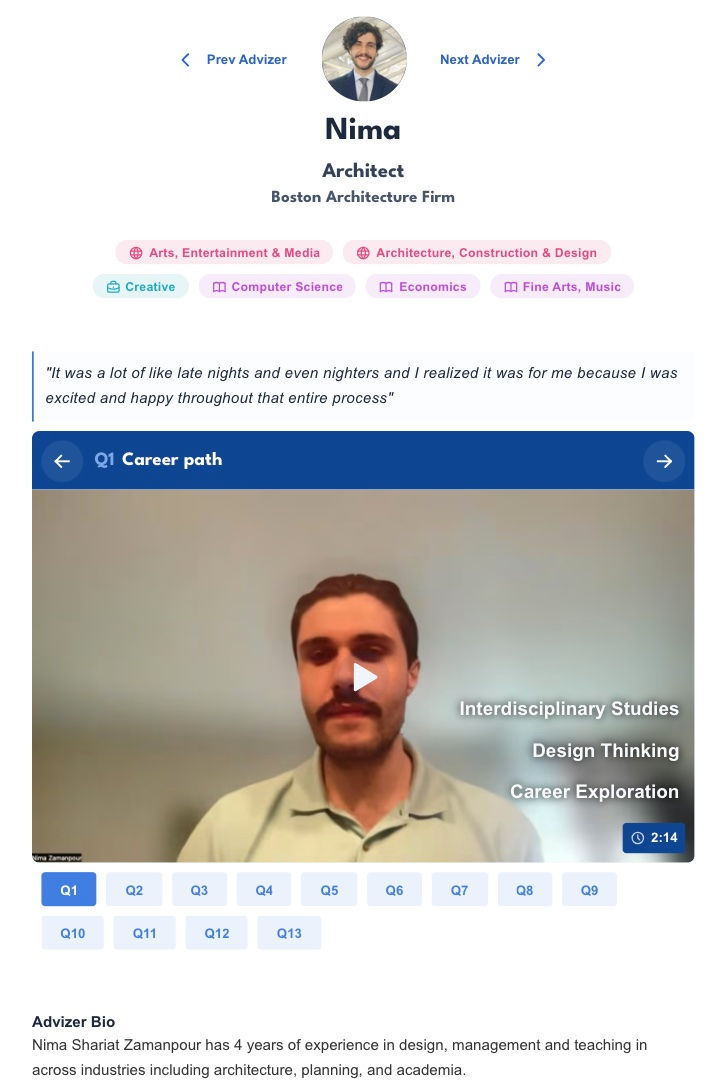Breaking Into Entertainment: Non-Traditional Paths to Your Dream Job
- emilymcsherry2023
- Jan 27
- 3 min read

Whether you're a student plotting your career course or a professional contemplating a change, here's an encouraging insight: some of the most successful entertainment industry professionals we've interviewed at Advize started in completely unexpected fields.

The Power of Unexpected Beginnings
"If you would've told me that I would grow up and become an artist, I probably would've laughed you out of the room," shares Amanda, now a Voice Over Director at Talkback Casting & Directing. Her journey began at a theme park, where she developed project management and crew coordination skills that unexpectedly prepared her for voice directing major video game titles like Death Stranding and Call of Duty.
This pattern of unexpected transitions appears repeatedly across the industry. Sara, now a Senior Writer/Creative Director at Starbucks, pivoted from virtual reality to themed entertainment. "Because I learned I didn't really want to go the traditional assistant route in film, I pivoted to virtual reality," she explains, demonstrating how being open to new paths can lead to fulfilling creative roles.
Why Non-Traditional Backgrounds Succeed in Entertainment

Fresh Perspectives: Nima, now an architect at a firm in Boston, began his career journey interested in car design. His diverse background in computer science, economics, and art provided unique insights: "Design was the kind of through line and the thing that actually merged all my passions." Rather than having to divide his interests into "separated stars," working in design helped him merge them "into a constellation."
Transferable Skills: Amanda's experience managing theme park operations translated perfectly to directing voice talent: "I knew how to manage people. I knew how to produce projects, so I threw my hat in the ring. I got the job, and from there it unfolded into this amazing career as a voice director."
Adaptability: The ability to pivot and learn new skills proves invaluable in the entertainment industry. Franklin, a production manager for the smash hit musical Hamilton, explains: "Being flexible and adaptable is really important. Day to day, sometimes I am a financial wizard and I'm helping to figure out how to move money around to stay within budget...and some days, I am a creative executive and I sit with a designer and we brainstorm."
Making the Transition to Entertainment
For Students:
Pursue internships in various aspects of entertainment
Join relevant clubs and organizations
Take on leadership roles in creative projects
Network with alumni in the industry
For Professionals:
Leverage transferable skills from your current role
Look for opportunities to gain industry experience
Build relationships within your target sector
Consider starting in adjacent roles
Entry Points into Entertainment:
Production assistant roles
Coordinator positions
Writers' room support staff
Agency mailroom positions
Marketing and social media roles
Success Strategies

Sara credits much of her career success to networking, which she began as early as college. Participating in clubs and extracurriculars allowed her to build not only an early resume of skills, but a community that went on to provide her long-term professional support. In her words, these early-career activities allowed her to "make a lot of connections with people that were moving in the same direction that I was. The way that I got the current position that I have now was through a friend that I had made in my student theater club."
Getting Started
Whether you're a student or professional, focus on:
Building a portfolio of relevant experience
Developing industry-specific skills
Creating and maintaining professional relationships
Looking for opportunities to apply your unique expertise
Remember what Amanda shares about seizing any relevant opportunity to break into the industry: "Getting your foot in the door comes down to just being willing to do whatever work comes your way."
Looking Forward
The entertainment industry continues to evolve, and with it, the definition of what makes a successful professional. Your background in technology, business, or even theme park operations might be the perfect foundation for a rewarding entertainment career.
Want to learn more about how your specific background could translate into a career path? Visit us at Advize for more insights from successful, relatable professionals sharing real information to help.
If you ever want to reach out for help, advice or networking, shoot us an email at hello@advizehub.com or message us on Slack!
Wishing you success,
Emily McSherry
Founder & CEO
